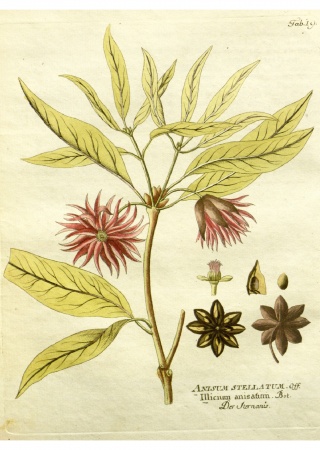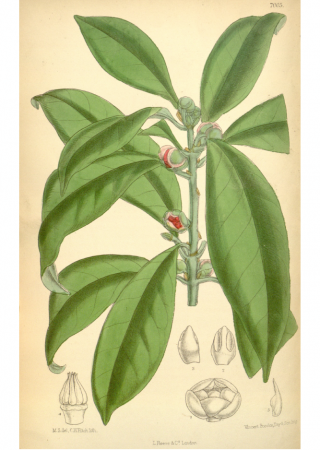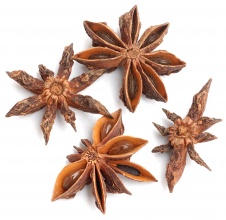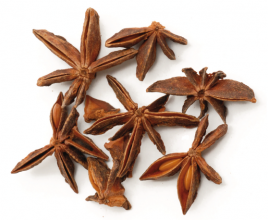Star anise
- …the Illicium verum tree bears no fruit before age 6, but then can bear fruit for up 100 years?
- …an Illicium verum tree reaches an average height of 8 meters and produces up to 40 kg of fruit in a year?
- …the ripe fruit is picked by hand or knocked loose with bamboo sticks, like nuts are here?
- …star anise can be chewed after a meal to aid digestion and freshen breath?
- …star anise is the dried fruit, ground or whole, of the Illicium verum tree?
- …Illicium verum is a close relative of the magnolia, common in parks?
- …atar anise is certainly the prettiest spice?
- …the yellow flowers of Illicium verum are changed in to brown fruits which rends in to shape of star.
Meat with star anise
400 g pork (beef, mutton, rabbit, etc.)
4 star anise tips
2 onions
2 egg whites
4 tablespoons oil
1 tablespoon wine
1 teaspoon soy sauce
Handful chopped kohlrabi (or zucchini, cabbage, peppers)
pinch MSG
1 tablespoon cornstarch
salt
Cut meat into thin strips, lightly salt and mix with whipped egg whites. Let stand. Heat 2 tablespoons of oil in a pan, add chopped onion, star anise fruits and brown thoroughly. In another pan, fry the meat, add chopped kohlrabi and water, contents of first pan and simmer. In a cup, mix soy sauce, MSG and cornstarch with two tablespoons water, pour over meat and stir. Drizzle a few drops of oil over meat and simmer briefly. Serve with rice or angel-hair pasta.
Star anise has been known in China as a spice and medicine for over 3,000 years. When in 970 AD, the southern states lost a cruel and merciless war with the Chinese emperor, they had to pay war reparations in star anise. The English pirate Sir Thomas Cavendish brought star anise to Europe from the Philippines in 1588. It began appearing in European kitchens during the 17th century as an aromatic agent added to tea in the Russian Czar's court. It was not used in Germany until the end of the 18th century. The genus name Illicium comes from the Latin illicere, meaning lure or attract.




